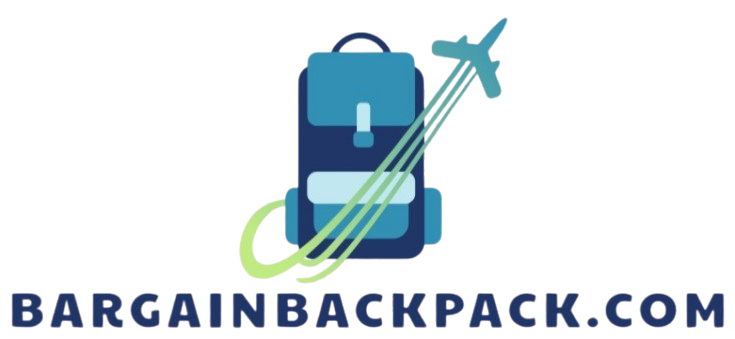How to Make Your Budget Last Longer?
Creating a budget transcends mere number crunching; it s about grasping your financial landscape and making informed decisions that genuinely impact your life.
This article guides you through assessing your income and expenses, pinpointing opportunities to cut back, and implementing strategies that will extend your budget s reach.
Uncover methods to maximize your income and design a realistic budget plan that aligns with your long-term financial aspirations. Join in as you navigate the essentials of effective budgeting, paving the way for a more secure financial future.
Contents
- Key Takeaways:
- Understanding Your Budget
- Identifying Areas to Cut Back On
- Tips for Stretching Your Budget
- Strategies for Saving Money
- Maximizing Your Income
- Creating a Realistic Budget Plan
- Frequently Asked Questions
- How Can Tracking Expenses Help Your Budget Last?
- Why Is a Budget Plan Vital?
- Common Unnecessary Expenses to Cut
- Specific Ways to Save Money
Key Takeaways:

- Assess your income and expenses to gain a better understanding of your budget.
- Identify and cut back on common expenses to make your budget last longer.
- Strategize ways to save money and increase your income to maximize your budget.
Understanding Your Budget
Understanding your budget is key to managing your money well and maintaining financial accountability. With a well-structured budget, you can effectively track your spending habits, evaluate your income and expenses, and ultimately reach your financial goals.
By taking the time to analyze your fixed and variable expenses, you can craft a budget that allocates every dollar you earn to specific expenses. This foundational step enables you to transform detrimental spending habits into responsible financial practices.
Assessing Your Income and Expenses
Assessing your income and expenses is an essential first step in crafting a realistic monthly budget that aligns with your financial priorities. This process involves taking a comprehensive look at all your income sources, enabling you to gain a clearer understanding of your financial landscape.
Categorizing your expenses into fixed and variable types is crucial. Fixed expenses, like your rent or mortgage payments, remain constant every month, while variable expenses, such as dining out or entertainment, can fluctuate. Leveraging budgeting apps can significantly streamline this process, enabling you to effortlessly track and categorize your spending.
Understanding your cash flow how money flows in and out is vital. It allows you to identify patterns and pinpoint areas for potential savings, ultimately guiding you toward more informed financial decisions.
Identifying Areas to Cut Back On
Identifying areas where you can cut back is crucial for optimizing your budget and enhancing your savings. By carefully evaluating your expenses, you can differentiate between your needs and wants, paving the way for intentional budget cuts that align seamlessly with your financial goals.
This process boosts your cash flow and builds your emergency fund, preparing you for life’s surprises.
Common Expenses to Reduce

You can significantly improve your financial stability and savings by identifying and reducing several common expenses.
Take a closer look at areas like entertainment those movie nights and streaming subscriptions can really add up. Dining out is another culprit that often leads to overspending. It s crucial to distinguish between fixed and variable expenses. While fixed expenses, like rent or insurance, are unavoidable, diving into variable expenses can uncover valuable opportunities for savings.
Consider scaling back on those little extras, like coffee runs or impulse purchases, which may seem minor but can pile up over time.
By setting clear financial priorities, you can determine where to focus your efforts and optimize your budget allocations, paving the way for a more secure financial future.
Tips for Stretching Your Budget
To stretch your budget further, consider implementing effective budgeting tips that resonate with your financial goals and priorities. These strategies can enable you to optimize your spending habits while maximizing your savings.
By leveraging available financial resources, developing a comprehensive budgeting strategy, and perhaps enlisting an accountability partner, you can elevate your money management skills and achieve your financial objectives with greater efficiency.
Start taking control of your finances today! Your future self will thank you.
Strategies for Saving Money
Strategies for saving money can significantly influence your overall financial health and help you reach your money goals.
By adopting practical approaches, you can create a strong financial foundation that prepares you for both expected expenses and unexpected emergencies.
Establishing an emergency fund is a crucial first step; it serves as your safety net in times of need. Automating your savings through automatic transfers simplifies the process, enabling you to prioritize saving without giving in to the temptation to spend.
Regularly adjusting your budget ensures that your financial plans stay relevant and effective. These efforts enable you to take control of your finances, paving the way for a more secure financial future.
Maximizing Your Income
Maximizing your income is vital for achieving financial stability and fulfilling your money ambitions. By exploring diverse ways to boost your earnings whether through side hustles or seeking financial help for debt repayment you can significantly enhance your money management strategies.
This approach helps you manage your expenses and lays the groundwork for a sustainable financial future.
Ways to Increase Your Earnings

There are numerous ways to increase your earnings and improve your financial situation through strategic money management.
For instance, freelancing in areas like graphic design or writing allows you to leverage your skills to attract clients on platforms like Upwork or Fiverr.
Simultaneously, exploring side hustles, whether driving for rideshare services or selling your handmade crafts on Etsy, can provide those much-needed financial boosts.
Effective budgeting is essential. By tracking your expenses and setting clear savings goals, you can allocate funds toward these lucrative opportunities.
Utilizing budgeting apps can reveal your spending patterns, enabling you to make adjustments that maximize your disposable income. This extra income can then be reinvested into enhancing your skill set or pursuing additional income-generating activities.
Creating a Realistic Budget Plan
Creating a realistic budget plan is crucial for effective financial planning and reaching your financial goals. A well-structured budget acts as your roadmap, guiding your spending habits and holding you accountable to your financial objectives.
Incorporating regular budget reviews and perhaps finding an accountability partner can refine your budgeting process. This ensures that you can make the necessary adjustments to stay on course.
Steps to Follow for Long-Term Budgeting
Following specific steps for long-term budgeting can significantly enhance your ability to achieve financial stability and success.
To start, begin with an initial assessment of your current financial situation. Analyze your income, expenses, liabilities, and assets. This foundational understanding will enable you to craft a well-informed budget.
Next, consistently monitor your spending habits. This ensures that any deviations are spotted quickly, allowing for timely adjustments.
Regularly reviewing your budget is essential for assessing your progress toward your financial goals and adjusting as circumstances evolve.
It s crucial to align these budgeting steps with your broader financial aspirations and a solid savings plan. This way, every financial decision you make contributes positively to your long-term objectives.
Frequently Asked Questions
Want to stretch your budget?
Here are some exciting tips to help you!

Making your budget last longer can be challenging, but with these tips, you can stretch your money further and achieve your financial goals.
What are some tips for making your budget last longer?
- Track your expenses.
- Create a budget plan.
- Cut unnecessary expenses.
- Find ways to save money.
Try these tips now to see your budget stretch further!
How Can Tracking Expenses Help Your Budget Last?
Tracking your expenses shows you where your money goes. This visibility helps you cut back and stick to your budget.
Why Is a Budget Plan Vital?
A budget plan helps you manage your money better. It prioritizes your expenses and prevents overspending.
Common Unnecessary Expenses to Cut
Frequent dining out, subscription services, and impulse purchases are often unnecessary expenses. Start cutting these today to stretch your budget!
Specific Ways to Save Money
There are many ways to save money. Use coupons, buy in bulk, and negotiate prices to stretch your budget.






